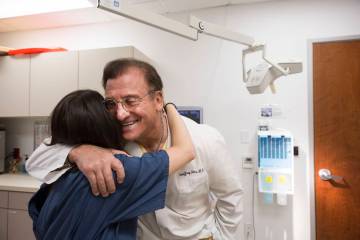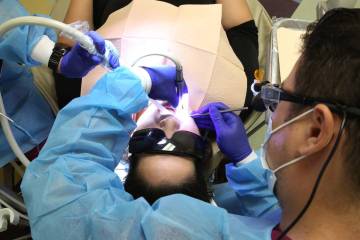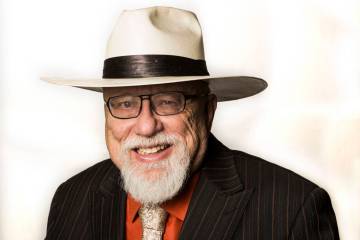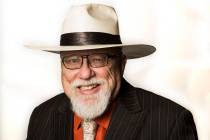Life-saving gadget will do no good in a drawer
You may be old enough to remember the late Daniel Schorr as a newsman for CBS and NPR, a journalist who made President Richard Nixon’s “enemies list” during the Watergate scandal that forced Nixon to resign.
I remember Schorr that way but also for a fall he took in 2010 in Washington, D.C., when he was 93 years old.
I was on the medical beat then and had long wondered about the effectiveness of medical alarm devices, which were increasingly being marketed to seniors for falls, heart attacks and strokes. A story about Schorr’s accident helped convince me that the devices monitored 24/7 could be as worthwhile as dramatic commercials suggested.
After falling in his bedroom, Schorr suffered severe cuts. Though he yelled to his wife for help, she couldn’t hear him over a radio.
He then pushed the emergency alert pendant he was wearing. Soon his wife received a call from an emergency operator, who said: “We got an alert signal. Is anything wrong?”
Schorr’s wife, who insisted he wear the alarm device because he was growing increasingly frail, rushed upstairs to find him lying in a pool of blood. Though he died three months later of unrelated causes, Schorr’s wife credited the device for keeping him from a hospital stay or worse. His injuries were handled in an emergency room.
Today, improved sensors worn around the neck have made sales of automatic fall detection systems skyrocket. That makes sense, given that people living alone may be knocked unconscious during a fall. Studies show that more than 2.5 million Americans older than 65 fall each year.
“It’s terrible when we get someone at the emergency (room) who’s been lying somewhere for a couple days until someone finds them,” said Dr. Dale Carrison, head of emergency at University Medical Center. “There’s not much we can do then.”
Las Vegan Roseanne Davis, 75, wears a Bay Alarm Medical device around her neck in the shower and on a ladder.
“That’s when I feel I could fall,” she said.
Unfortunately, researchers have found that what frequently blocks the effectiveness of the devices — those automatically detecting falls are $10 more than $30-a-month push-button systems — is that often people who have them don’t wear them.
What a waste.
A major reason, according to two 91-year-olds I interviewed, is how they were asked to wear them by loved ones. Both asked that I not identify them because they didn’t want to hurt relatives’ feelings.
Essentially, they don’t like “elderspeak,” someone talking slowly and loudly because of their age. Greg Sanders, a gerontologist at North Dakota State University, says seniors dislike being patronized.
“Even if it’s my own daughter-in-law, I don’t like being lectured by someone 30 years younger than me about what’s best for me,” a World War II veteran said. “They mean well, but condescension doesn’t work.”
Although the elderly woman I talked to didn’t appreciate a son acting as her parent, she did say she now feels safer with the device. Once when she fell down at home, she pushed her button and soon first responders appeared.
“The firemen used my lockbox to get in, picked me up and I didn’t have to go to the hospital,” she said.
Carrison, who is 77, never has a problem persuading seniors to stay off ladders or to use alarm devices.
“I tell the truth, that our balance, sight and coordination have diminished, and it makes sense to be safe,” Carrison said. “And they agree. They just want to be spoken to with the respect they deserve.”
Paul Harasim’s column runs Sunday and Tuesday in Nevada & The West and Monday in Health. Contact him at pharasim@reviewjournal.com or 702-387-5273. Follow @paulharasim on Twitter.



























